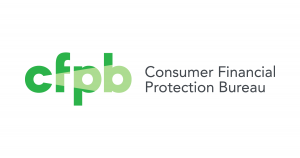
Q: When does the Director of a powerful federal agency draft a report that urges Congress to pass laws that siphon away the vast majority of his authority?
A: When Donald Trump is President, and the agency is the Consumer Financial Protection Bureau (“CFPB”) – the brain child of the woman President Trump likes to call “Pocahontas” – Elizabeth Warren.
The CFPB is a product of the Dodd–Frank Wall Street Reform and Consumer Protection Act (“Dodd-Frank”), which passed in the aftermath of the financial crisis of the late 2000’s and the Great Recession. Its self-described mission is: “to make consumer financial markets work for consumers, responsible providers, and the economy as a whole. We protect consumers from unfair, deceptive, or abusive practices and take action against companies that break the law. We arm people with the information, steps, and tools that they need to make smart financial decisions.”
Sounds good, right? And since its inception, under the leadership of Directors appointed by President Obama, including, you guessed it, Elizabeth Warren, the CFPB claims to have curtailed abusive debt collection practices, reformed mortgage lending, publicized and investigated hundreds of thousands of complaints from aggrieved customers of financial institutions, and extracted nearly $12 billion for 29 million consumers in refunds and canceled debts.
One of the CFPB’s primary objectives has been to enforce Dodd-Frank’s rules about who is to be considered a “Mortgage Loan Originator,” which has likely put the brakes on thousands of potential seller-financed real estate deals, and has caused many in the real estate industry to jump through expensive regulatory hoops in order to remain in compliance.
So, what’s the problem? Well, there are many in the party that currently occupies the White House, as well as majorities in the House and Senate, who believe that the CFPB is simply too big, too powerful, and too independent from those who have been elected to govern. For example, funding for the CFPB is set at a certain percentage of the operating expenses of the Federal Reserve (no budget oversight from Congress), and the Director of the CFPB can only be removed by the President for “inefficiency, neglect of duty or malfeasance” (little or no oversight in leadership from the President).
So, in the name of increasing “accountability,” Mick Mulvaney, the Acting Director of the CFPB has asked Congress to do the following:
1) Fund the Bureau through Congressional appropriations;
2) Require legislative approval of major Bureau rules;
3) Ensure that the Director answers to the President in the exercise of executive authority; and
4) Create an independent Inspector General for the Bureau.
The suggested changes would not repeal Dodd-Frank, or the administrative rules implementing it. However, it would allow CFPB opponents (you may know them as Republicans) to greatly curtail enforcement of those provisions by slashing funding for the agency, affording Congress the latitude to reject major rule changes it disagrees with, and allowing the President to remove a Director who does not share his “vision” for the CFPB. We’ll see if Congress has the political will to neuter an agency that many see as a necessary tool to help the “little guy” in his financial dealings with what are often huge, and hugely profitable corporations.